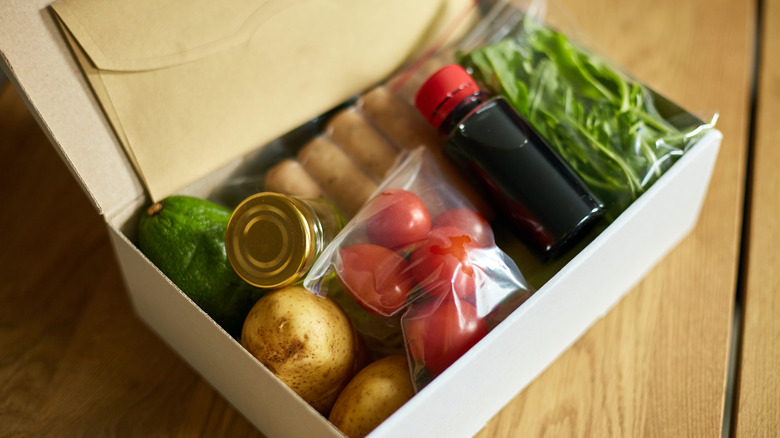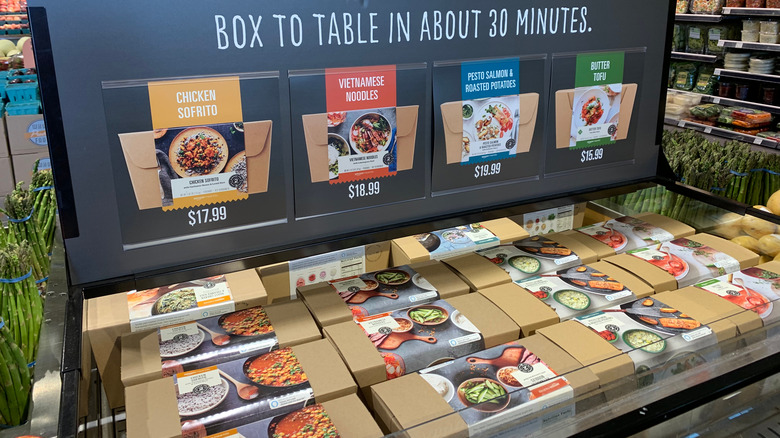Why Meal Kit Delivery Companies Are Unsurprised By Decreasing Sales
When the pandemic put us on lockdown and kept many people working from home afterward, the need for new meal ideas grew exponentially. People whose cooking skills didn't go far beyond toasting bread were suddenly responsible for three squares a day. Droves of home cooks turned to meal kit delivery subscriptions as they searched for a convenient way to improve dinner, with companies like HelloFresh seeing 102% revenue growth in 2020. But now that the pandemic is starting to wane, The Washington Post says sales for meal kit services are doing the same.
Leaders in the meal kit subscription industry point to a number of reasons for declining sales. People are returning to the office, frequenting re-opened restaurants, and pausing subscriptions as they prepare to be home less often. Inflation affecting the cost of food to meal kit providers has also turned what was a convenience for some during the height of the pandemic into a luxury. The high demand for meal kit deliveries during the pandemic also brought over 150 new subscription services to the marketplace that was formerly dominated by larger companies like Hello Fresh, Sunbasket, and Blue Apron; Grocers like Kroger and Whole Foods got in on the meal kit action as well.
And while you might expect meal kit companies to be panicking, they appear to have largely seen the declining numbers coming.
Decreased demand for meal kit services was inevitable
As pandemic related policies and concerns are being lessened and people are beginning to "return to normal," meal kit companies have been steeling themselves for an inevitable dip in sales. According to The Washington Post, HelloFresh said in a statement that it had expected this growth to "normalize" eventually, while Sunbasket chief executive Don Barnett called the experience a "roller coaster," stating "It wasn't so much a loss of users, although there is natural churn, but we saw more people skipping. We expected that."
Food Navigator explains that some meal kit companies are shifting their focus to online marketplaces where they can provide more grocery items and "a la carté" options in addition to meal kit subscriptions. It points to companies like Imperfect Foods and HelloFresh as two different brands who have made the pivot in anticipation of the change. While companies may not see growth numbers that compare to those of the pandemic, the outlet explains that experts believe there is still room for growth in the industry going forward as long as companies are willing to adapt. Sunbasket's Barnett agrees, telling The Post any company refusing to change will "go by the wayside or be consolidated."

